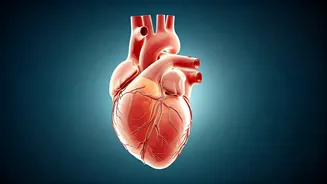Embrace Healthy Eating
A crucial aspect of managing blood pressure is dietary modification. The guidelines emphasize the importance of the Dietary Approaches to Stop Hypertension
(DASH) eating plan. This plan encourages the consumption of fruits, vegetables, and whole grains while reducing intake of sodium, saturated fats, and added sugars. By incorporating these food choices, individuals can lower their blood pressure naturally. The DASH diet not only helps in blood pressure management but also supports overall cardiovascular health, reducing the risk of heart disease and stroke. It is a well-rounded approach that focuses on whole, unprocessed foods, ensuring a balanced intake of essential nutrients.
Watch Your Sodium
Limiting sodium intake is a fundamental lifestyle change. The guidelines recommend reducing daily sodium consumption to less than 2,300 milligrams, and ideally, even less. High sodium levels cause the body to retain water, increasing blood volume and consequently, blood pressure. Individuals can achieve this reduction by reading food labels carefully, being mindful of hidden sodium in processed foods, and opting for fresh, home-cooked meals. Simple steps like using herbs and spices instead of salt, and avoiding salty snacks can significantly contribute to better blood pressure control and overall health.
Get Active Regularly
Regular physical activity is a cornerstone of any strategy to reduce blood pressure. The guidelines suggest engaging in at least 150 minutes of moderate-intensity aerobic exercise, such as brisk walking or cycling, each week. Alternatively, individuals can opt for 75 minutes of vigorous-intensity exercise, like running. Exercise helps lower blood pressure by strengthening the heart and improving blood vessel function. It also aids in weight management, another key factor in controlling blood pressure. Integrating exercise into daily routines, such as taking the stairs or going for a walk during lunch breaks, can make a considerable difference.
Maintain a Healthy Weight
Maintaining a healthy weight is vital for blood pressure management. Being overweight or obese significantly increases the risk of high blood pressure. The guidelines recommend achieving and maintaining a healthy body mass index (BMI). Weight loss, even a modest reduction of 5-10% of body weight, can significantly lower blood pressure. This can be achieved through a combination of a balanced diet and regular exercise. Healthcare professionals can offer personalized advice and support to help individuals achieve their weight goals safely and effectively.
Limit Alcohol Intake
The consumption of alcohol can impact blood pressure levels. The guidelines advise limiting alcohol intake to moderate levels. This translates to up to one drink per day for women and up to two drinks per day for men. Excessive alcohol consumption can raise blood pressure, as well as increase the risk of various health issues. For individuals who consume alcohol, adhering to these moderate limits is essential. It's also important to be aware of how alcohol interacts with any medications being taken, as this can further affect blood pressure levels. Those with high blood pressure should discuss alcohol consumption with their doctor.
Manage Your Stress
Chronic stress can elevate blood pressure. Implementing stress-reducing techniques is crucial for blood pressure management. The guidelines suggest incorporating relaxation techniques into daily routines. Practices like deep breathing exercises, meditation, yoga, or spending time in nature can help lower stress levels and, in turn, reduce blood pressure. It is also beneficial to identify and address stressors in life. Seeking support from friends, family, or a therapist can also be helpful. Regular stress management can lead to improved mental and physical health.
Quit Smoking Immediately
Smoking is detrimental to cardiovascular health. The guidelines strongly advise quitting smoking immediately. Smoking damages blood vessels, raises blood pressure, and increases the risk of heart disease and stroke. Quitting smoking is one of the most impactful steps an individual can take to improve blood pressure and overall health. Various resources are available to help smokers quit, including nicotine replacement therapy, counseling, and support groups. Healthcare professionals can offer guidance and support throughout the quitting process.
Monitor Blood Pressure
Regular blood pressure monitoring is essential for effective management. The guidelines recommend regular blood pressure checks at home, along with visits to a healthcare provider. Home monitoring allows individuals to track their blood pressure trends and helps identify any fluctuations. Using a reliable blood pressure monitor and recording readings regularly is important. This information is invaluable for healthcare professionals to assess the effectiveness of any lifestyle changes or medications. Consistent monitoring ensures that blood pressure is well-controlled and any necessary adjustments can be made in a timely manner.
Take Prescribed Medications
For many, lifestyle changes alone may not be sufficient to control blood pressure. The guidelines emphasize the importance of taking prescribed medications as directed by a healthcare provider. Medications can effectively lower blood pressure and reduce the risk of complications such as heart attack and stroke. It's crucial to adhere to the prescribed dosage and schedule. Never stop taking medications or change dosages without consulting a doctor. Regular follow-up appointments and open communication with the healthcare provider are vital to ensure that medications are effective and well-tolerated.
Prioritize Quality Sleep
Adequate and quality sleep is crucial for blood pressure regulation. The guidelines highlight the importance of getting 7-9 hours of sleep each night. Sleep deprivation can raise blood pressure and increase the risk of cardiovascular issues. Creating a relaxing bedtime routine, ensuring a comfortable sleep environment, and avoiding caffeine and alcohol before bed can improve sleep quality. Addressing sleep disorders, such as sleep apnea, is also essential. Prioritizing good sleep habits supports overall health and aids in maintaining healthy blood pressure levels.













